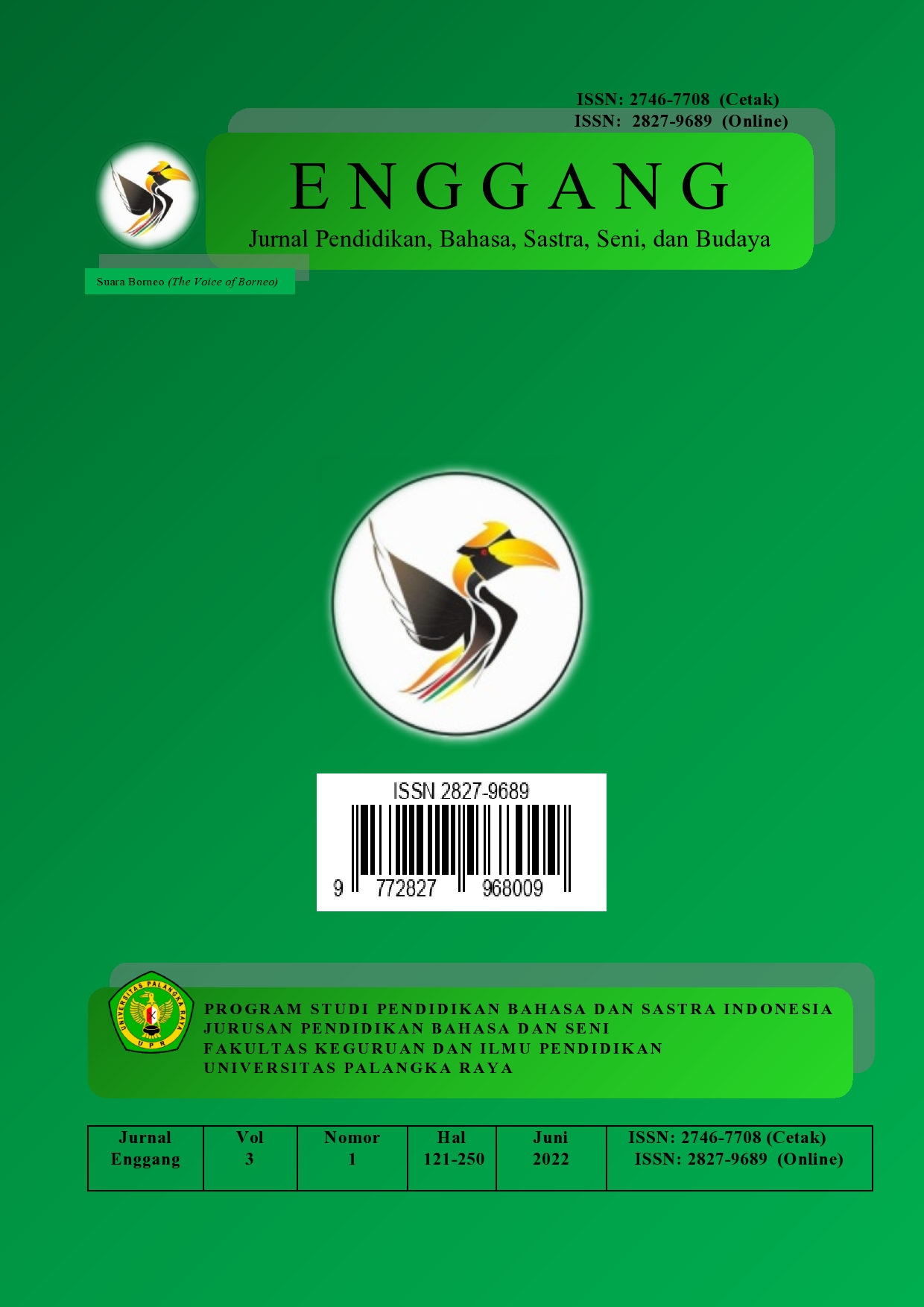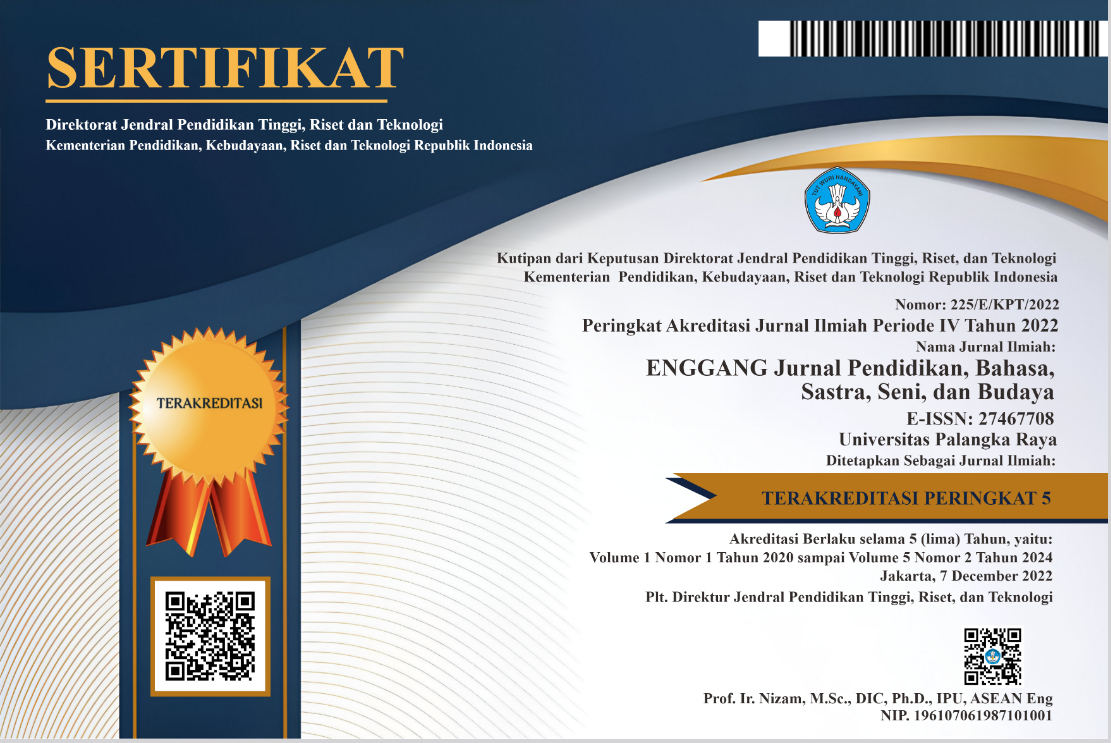FILSAFAT PENDIDIKAN SEBAGAI KONSEP PENGEMBANGAN KURIKULUM PENDIDIKAN SENI DI INDONESIA
DOI:
https://doi.org/10.37304/enggang.v3i2.8326Keywords:
filsafat, pendidian, kurikulum, seniAbstract
Educational philosophy is an important idea in the development of learning, especially the educational curriculum. This is an important bridge so that the direction of education becomes clearer to make an achievement. One of the most important parts is the development of the concept of an arts education curriculum which refers to several understandings in an educational philosophy. The development of an arts education curriculum includes several important streams such as philosophical, juridical, empirical foundations, with perennialism, essentialism, progressiveism, and reconstructiveism. The development of the art education curriculum aims to respond to the journey of art education in Indonesia. This is related to the function of the curriculum, its objectives, meaningfulness, benefits, parameters, achievements, and further development of art learning in Indonesia. In this study using a qualitative description method, by collecting data including interviews, literature studies, and observations, important sources in this study include the thoughts of art education developers, schools and communities, which are then matched with understandings of the arts education curriculum. The results of this study reveal the school of educational philosophy in looking at the development of the arts curriculum, both in its development, application, evaluation and subsequent development processes. Another thing is that the aspect of art education is an important part when viewed from the approach and understanding of educational philosophy in Indonesia. This reveals the achievements of each era and period of educational curriculum development as a basis for shaping art learning in formal schools in Indonesia.
Downloads
References
Afiyah, Istidamah Nailal. 2020. Filsafat Perenialisme dalam Kurikulum Pendidikan Anak Usia Dini
Alwasilah, A. Chaedar. 2008. Filsafat Bahasa dan Pendidikan. Bandung: Remaja
Rosdakarya.
Asi, Y. E., Elvira, E., Waruwu, N., Hartani, D., & Henita, M. (2022). Tingkat Kesulitan Guru Dalam Implementasi Kurikulum 2013 Pada Pembelajaran Drama. ENGGANG: Jurnal Pendidikan, Bahasa, Sastra, Seni, dan Budaya, 3(1), 57-64.
Daryanto,H.2012. Evaluasi Pendidikan. Jakarta: Rineka Cipta
Faris, Fitri Al. 2015. Kurikulum 2013 Dalam Prespektif Filsafat Pendidikan Progressivisme. Jurnal Filsafat, Vol. 25, No. 2, Agustus 2015.
Jalaludin, 2013. Filsafat Pendidikan. Jakarta: Raja Garvindo Persada
Jihad, A. 2013. Evaluasi Pembelajaran. Yogyakarta:Multi Pressindo
Nursikin, Mukh. 2016. Aliran-Aliran Filsafat Pendidikan dan Implementasinya Dalam Pengembangan Kurikulum Pendidikan Islam. Jurnal of Islamic Culture and education. Vol. I, No. 2, Desember 2016
Ross, Malcolm.1978. The Creative Arts. London:Heinemann Educational Books
Rohindi, T,R, (2011), Metodelogi Penelitian Seni, Semarang: CV.Cipta Prima Nusantara Semarang.
Sanjaya, Wina. 2007. Kajian Kurikulum dan Pembelajaran. Bandung : UPI
Saidah, A.H. 2020. Pemikiran Essensialisme, Eksistensialisme, Perenialisme, dan Pragmatisme Dalam Prespetif Pendidikan Islam. Jurnal Al-Azza, Vol 2 No 2, November 2020.
Soehardjo, A. 2012. Pendidikan Seni dari Konsep Sampai Program. Malang:Bayumedia Publishing
-.- PERMENDIKBUD Kurikulum 2013:-













